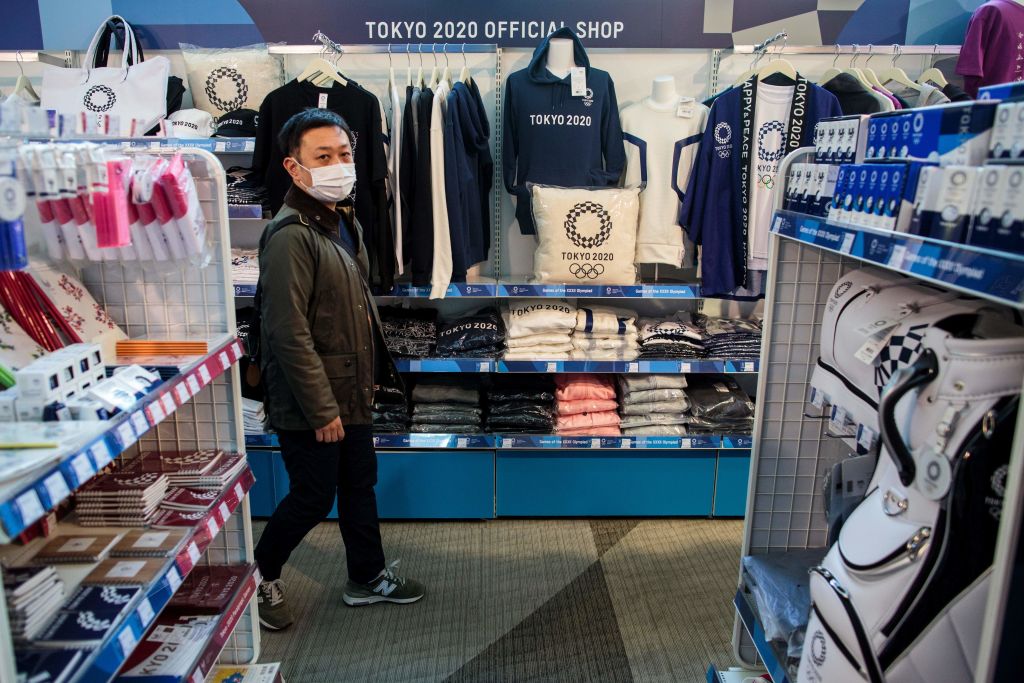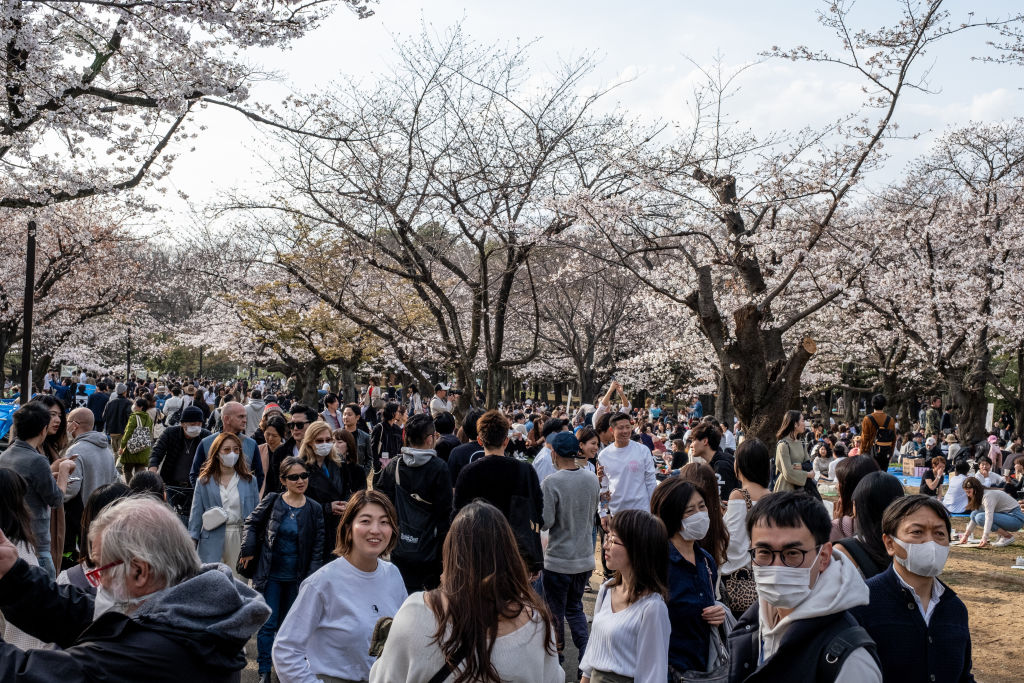Michio Yunoki’s hotel was suffering even before Prime Minister Shinzo Abe announced the 2020 Tokyo Olympics would be delayed one year. Nearly 90% of the guests who had booked rooms in March had cancelled because of coronavirus travel restrictions, and with the postponement of the games, he expects to lose most of his bookings this summer, as well.
“It’s had a huge impact on our business and for others it’s been even worse—a hotelier I know had to shut down, he just couldn’t survive the current situation,” said Yunoki, who runs the Little Japan Guest House in Asakusabashi, a popular tourist district in Tokyo.
Abe’s announcement on Tuesday that the Tokyo Olympic games, which had been scheduled for July, would be delayed until 2021, coupled with the ever-growing coronavirus pandemic, is a one-two punch to Japan in what was meant to be a big year for the country.
The delay was hardly a surprise in Japan, but came after weeks of mounting criticism from athletes and national Olympic organizations the world over, including several that said they would refuse to send teams to the Tokyo games if they carried on as planned. On Tuesday, an editorial in Asahi Shimbun, one of Japan’s largest newspapers, criticized both Abe and the International Olympic Committee for taking so long to come to a decision. The waffling, it said, had “awakened international distrust of the [IOC]” and Japan’s leadership had “bumbled the situation.”
Following Abe’s announcement, Tokyo Gov. Yuriko Koike then added that they would still be called the “2020 Olympics,” causing Twitter to erupt: One user suggested adding an ‘s’ to 2020 to make the name usable for 10 years. Another shared an image of the 2020 logo with the last 0 covered by a red stamp—the way a mistake would be corrected on Japanese documents and a nod to the country’s fastidiousness about paperwork.
But keeping the 2020 branding, clunky as it seems, helps the government make good on its promise to support small businesses affected by the delay: Vendors who’d stocked up on 2020 merchandise had been worried about selling it if the games moved to 2021. In recent weeks, a glut of Tokyo 2020 souvenirs have flooded Japanese online retail sites.
Many experts don’t expect the delay itself to have long-term economic impacts, but the pain that industries closely tied to the games are feeling now could be a harbinger of what’s to come for the world’s third-largest economy as the coronavirus crisis continues to unfold around the globe.
A March report by a securities firm found that a one-year delay would not hurt the Japanese economy. “The expense of running the games will remain the same and the audience will most likely return after the worst of the virus has passed,” says Yuhei Takano, an economist at SMBC Nikko Securities Inc., who co-authored the report.

But if the delay is followed by a coronavirus-related financial crisis, as is widely expected, Japan will likely be hit hard. “It would be like the global financial crisis of 2008 and Japan’s GDP could decline by 2 or 3 percent,” says Nomura Research Institute economist Takahide Kiuchi.
Kiuchi points to the Chinese economy, which was already slowing before it was crippled by the COVID-19 outbreak that originated in Wuhan. He says China, which is Japan’s biggest trading partner, isn’t likely to recover from the effects of the pandemic for at least a year. Couple that with a huge reduction in tourism and a decline in exports to the U.S., and it’s a mix that will be hard for Japan to surmount, he says.
“Compared to all that, the postponement of the games is not a huge factor.”
The country is particularly vulnerable because its economy is already fragile, with large government debt. Abe had hoped to juice it by increasing overseas tourists—and set a target of attracting 40 million visitors to Japan in 2020, capped by the Olympics. Hotel construction boomed and the government helped the industry reach out to overseas tourists.
For example, the Tokyo Metropolitan Government worked with Go Yuasa, the operations director for Nohga Hotel in Tokyo, to book every single room in the property to international guests coming for the games. Now, with the delay, the entire reservation has been cancelled and Yuasa is scrambling to rebook the rooms.
The government has indicated it wants to support vulnerable industries like hotels, and plans to help small businesses get no interest loans, so they can stay afloat until next year.
But that might not be enough. “For small hotels and inns, it’s already a matter of life-and-death,” says Setsuko Sato, a representative of the Japanese Ryokan and Hotel Association. She says the coronavirus-related drop in tourism is crushing Japanese hotels. She fears the government loans to address the Olympic delay won’t solve the problem. “Even if the Olympics are held next year, it’s not at all certain that this year’s losses will be recovered or that they’ll be able to survive until then.”
Yunoki, who runs Little Japan Guest House, is taking matters into his own hands. He helped launch a campaign to encourage people to buy vouchers that can be redeemed for hotel stays in the fall, when he expects the coronavirus pandemic to ease. Having the cash immediately would help him and other small hotel owners bridge the gap.
Still, even as it girds for a more significant economic downturn, Japan is—for now—faring better in the COVID-19 outbreak than many other large nations. It has a relatively low number of infections (about 1,200, compared to tens of thousands in the U.S., China and western Europe), although some critics point to low access to testing as a possible explanation. The government did close schools starting in early March and issued warnings against large gatherings, though most businesses remain open.

And yet on Monday, as Abe first broached the topic of delaying the Olympics, the country was celebrating its annual cherry blossom festival, the time of year when Tokyo residents pack into parks to picnic under the fluttering blooms. The government issued mild warnings and advised people to practice “social distancing” but many parks were nearly as crowded as ever.
Koike, the governor of Tokyo, on March 12 defended the decision to allow the celebrations to continue, saying that, “taking [cherry blossom celebrations] away from the Japanese is like taking away hugs from Italians,” a statement widely criticized as callous, when Italy was under nationwide lockdown with its infection rate and death toll soaring.
But on Tuesday, as it was becoming clear the Olympics would not happen this year and new coronavirus cases emerged in Japan, Koike adjusted her tone, saying a citywide lockdown of Tokyo was still a possibility. “We may have no choice but to impose strict isolation measures to prevent further spread.”
“Tokyo Lockdown” soon shot to the top of Japan’s trending topics on Twitter, far surpassing anything about the “2020 Olympics” and showing just how much the long shadow of coronavirus has darkened what was supposed to be Japan’s moment in the sun.
More Must-Reads from TIME
- Why Trump’s Message Worked on Latino Men
- What Trump’s Win Could Mean for Housing
- The 100 Must-Read Books of 2024
- Sleep Doctors Share the 1 Tip That’s Changed Their Lives
- Column: Let’s Bring Back Romance
- What It’s Like to Have Long COVID As a Kid
- FX’s Say Nothing Is the Must-Watch Political Thriller of 2024
- Merle Bombardieri Is Helping People Make the Baby Decision
Contact us at letters@time.com